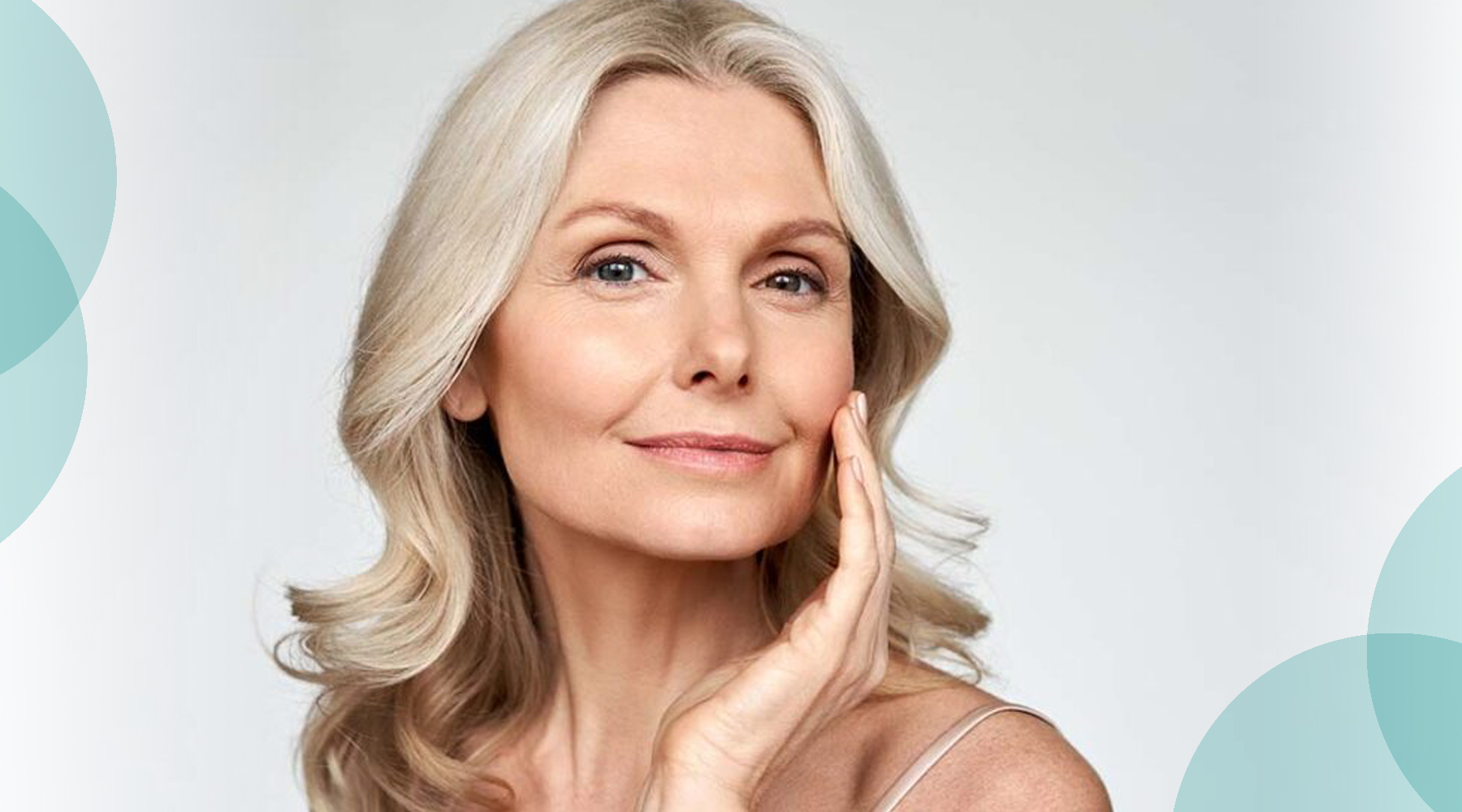Aging naturally is a beautiful thing. But a positive outlook on aging gracefully still struggles to go mainstream as a marketable beauty standard. Regardless, I’m here for it. No matter how young or old we might be, age does not define or diminish anyone’s worth. In fact, I’d argue we are all more distinctly beautiful with age.
Throughout our lives, we’re forever blossoming into our fullest, most evolved selves. Our youth is just the beginning of that journey. Before we go further, let’s embrace where we’re at right now, reminding ourselves to celebrate and appreciate each stage, at every age. Truly feeling beautiful starts with #SelfLove, after all. While inner beauty will always matter most, there’s nothing wrong with loving the skin we’re in.
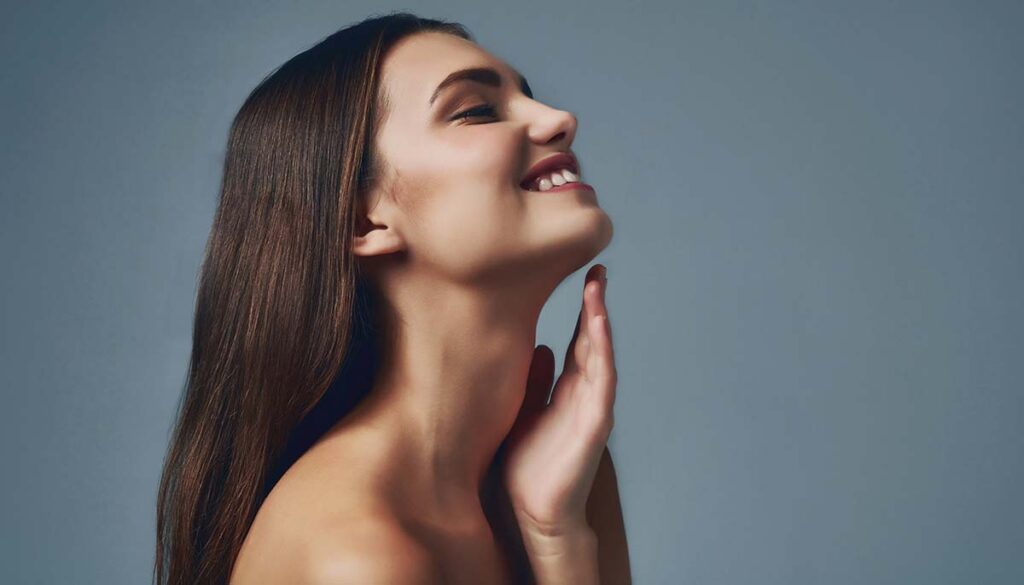
As we all know by now, we shouldn’t neglect taking care of our skin and protecting it. On social media, you’ve undoubtedly witnessed celebs, influencers, fam, and friends doing just that lately. It seems everyone is officially getting serious about their skincare routines and self-care practices. How we measure beauty appears to be evolving and expanding once again too.
Still, sometimes it feels like the current stances are more conflicting than ever. With social media platforms that allow everyone a voice in the beauty battle, strong, and often conflicting, opinions are to be expected.
Without further ado, let’s take a closeup look at why the idea of “anti-aging” might become a thing of the past, how social media is reshaping beauty standards, and why being “pro-aging” doesn’t have to mean tossing out your favorite beauty serum.
The Rise of Influencers, Filters, and “Snapchat Dysmorphia”
We’ve all heard that “beauty is only skin deep.” While that has truth to it, there’s more to beauty than what’s on the surface. Even still, if we stick solely to evaluating what’s on the outside, beauty is still more meaningful, more complex, and more subjective than what it’s often reduced to by those selling ideas of what’s beautiful.
On social media, the accepted beauty standards have sharply diverged. One camp says we are most beautiful when we accept ourselves as we are and the other implies that objective, borderline unattainable good looks are the only looks worth striving for. Both swear by a solid skincare routine, but the battle of these beauty standards continues. So does the desire to fit idealized molds.
In this day and age, physical appearances have become easily malleable and marketable, especially on social media. The most popular face filters smooth the skin, plump the lips, extend the lashes, and/or completely reconfigure the face. These beautifying tools often promise things like “perfecting” and “fine-tuning” our faces. Those who sport these filters regularly seem to think they look “better.” But do they really?
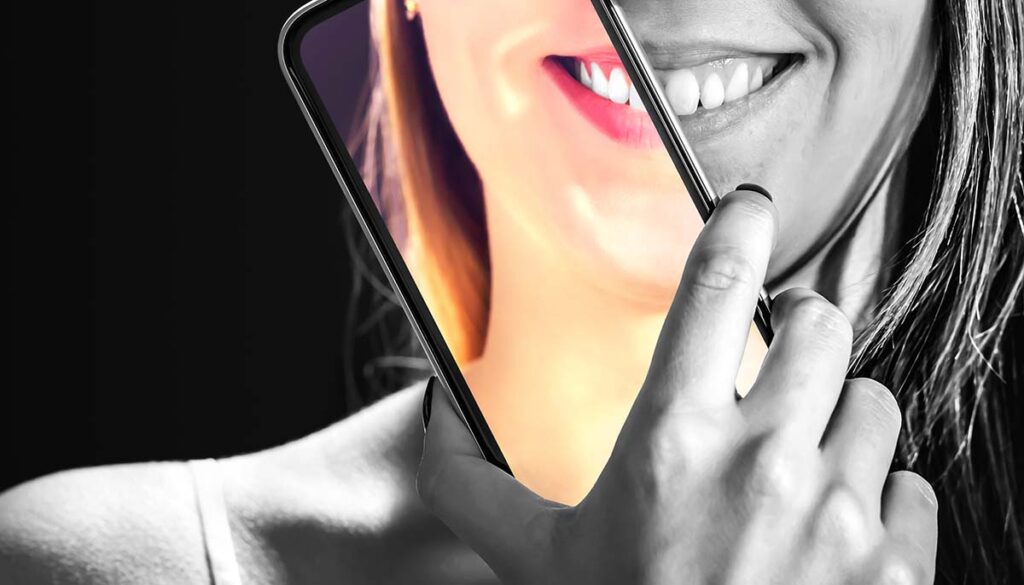
Generally, these filters create freakishly flawless and alienesque versions of their former selves. As noted by Forbes, psychologists and doctors call this casual face-altering phenomenon the “Instagram Face” or “Snapchat Dysmorphia.” Top-earning influencers (who often resemble those very filters) are rarely shy about having a job heavily contingent on their widely sought-after looks.
Many influencers are making millions selling, endorsing, and posing in bikinis next to products as we speak. In turn, their filter-envied faces are frequently seen as an investment and a necessity to achieve/maintain such a lucrative career. For better or worse, aspiring influencers of tomorrow are taking notice.
Once hush-hush, plastic surgery is now something more openly discussed and accepted. It’s also more accessible. Some experts have started calling these filters “a preview” of what plastic surgery can do. Uncoincidentally, women are having work done more often and earlier in life than in years past.
No matter how small the tweak or temporary the filler, innovative and less invasive procedures have begun to normalize nip-tucks. In turn, women, especially those in the spotlight and those who long to be, are rushing to alter their appearances. As of late, a few celebs have expressed remorse.
Bella Hadid Says She Regrets Going Under The Knife
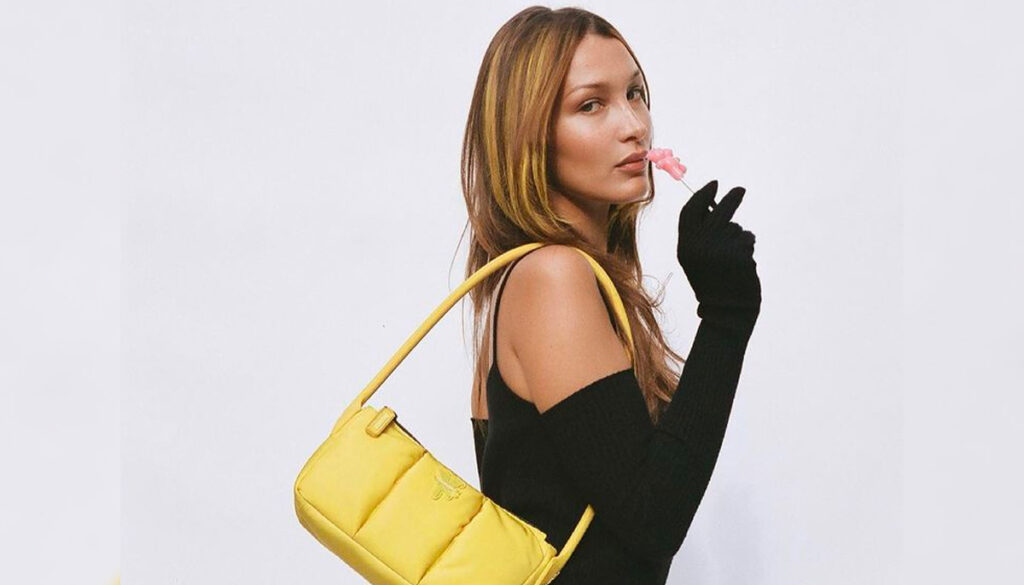
In 2022, Bella Hadid opened up about regretting her decision to have plastic surgery. After years of unconfirmed speculation, the model/influencer revealed she chose to have “a nose job” at the age of 14. Now 25, Hadid says she felt “pressure to conform” and fit the beauty standards surrounding her.
While the decision cannot be undone, there’s no denying that it helped shape the $25 million dollar career she now has. Still, if she could go back, Hadid says she would’ve done things differently.
I wish I had kept the nose of my ancestors. I would’ve grown into it.
Bella Hadid, US Magazine
The public response to Hadid’s remorse was mixed. Still, the vast majority seemingly found her self-image struggles relatable. It’s not unusual to look back and realize the error of our younger ways. As they say, with age, comes wisdom. Or as one budding movement is currently insisting; you’re beautiful the way you are, at any and every age. “So take care of yourself.”
Welcome to The “Pro-Aging” Movement (in its Infancy)
Amidst the endless nighttime routines on TikTok, filler frenzies, and ingeniously simple skincare hacks, you’ve likely noticed “pro-aging” posts popping up here and there.
The idea of pro-aging involves taking care of one’s skin and letting age run its course. Instead of striving to look younger, the goal is to become your healthiest self and love yourself as you are. In other words, the pro-aging movement is more about taking proper care of ourselves and our skin, no matter our age.
As with all beauty movements and standards, healthy skin is in.
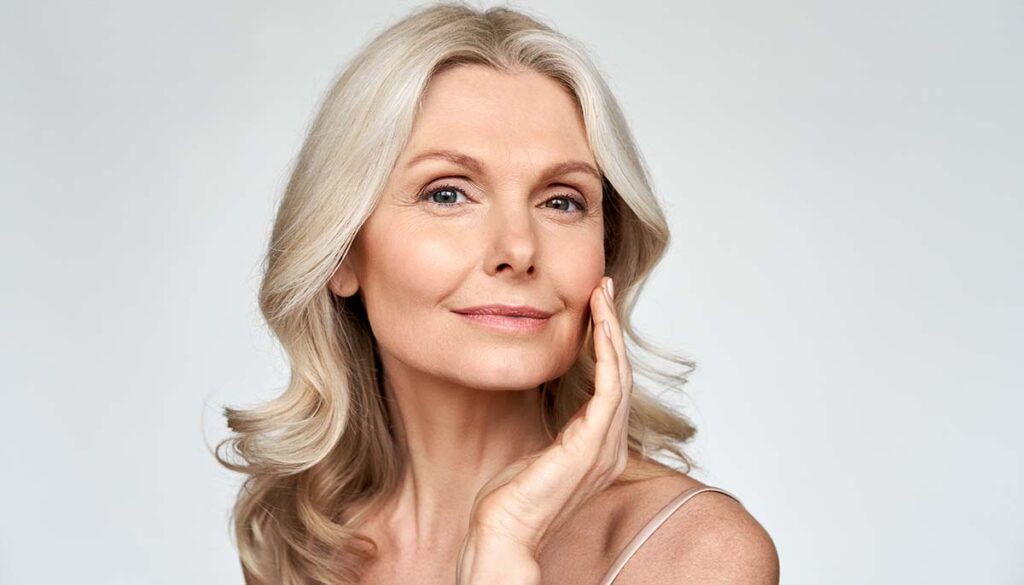
Thanks in part to growing discussions about “pro-aging”, the idea of “anti-aging” may very well be evolving into an outdated, off-brand concept. But that’s going to take more time. Still, those who are all about aging gracefully/naturally have even deemed “anti-aging” an “ugly” term we should lay to rest.
“Changing the way we think about aging starts with changing the way we talk about aging. Anti-aging has been a beauty byword since the 1980s when it was dreamed up by an advertising exec to sell products to older women,” per The Guardian.
While “pro-aging” gains traction, more and more celebs are going au-natural in one way or another. Many have let their fillers dissolve and embraced their mature beauty with enthusiasm. They often voice feeling empowered by owning their aging process. On the flip side, not everyone is taking the anti-aging backlash or the pro-aging movement lightly.
One Former Super Model is Getting Real About Ageism
On Instagram, Paulina Porizkova remains one of the most outspoken celebs in support of the pro-aging movement. The former supermodel consistently posts photos with lengthy captions about her self-esteem struggles and lifelong journey to shameless self-love. To her, pro-aging is about being healthy, confident, and at peace.
But of course, where there’s a strong personal statement on social media, there’s an outpouring of both support and hate in the comments.
The fact is, the 57-year-old stunner remains one of the most eternally and impossibly beautiful women on earth. In response to her age-positive posts, some argue her “pro-aging” stance is a little too convenient. Not only did she make her fortune off her face and physique, but she’s also still doing so. Nevertheless, making a living for being objectively gorgeous doesn’t take away from her point.
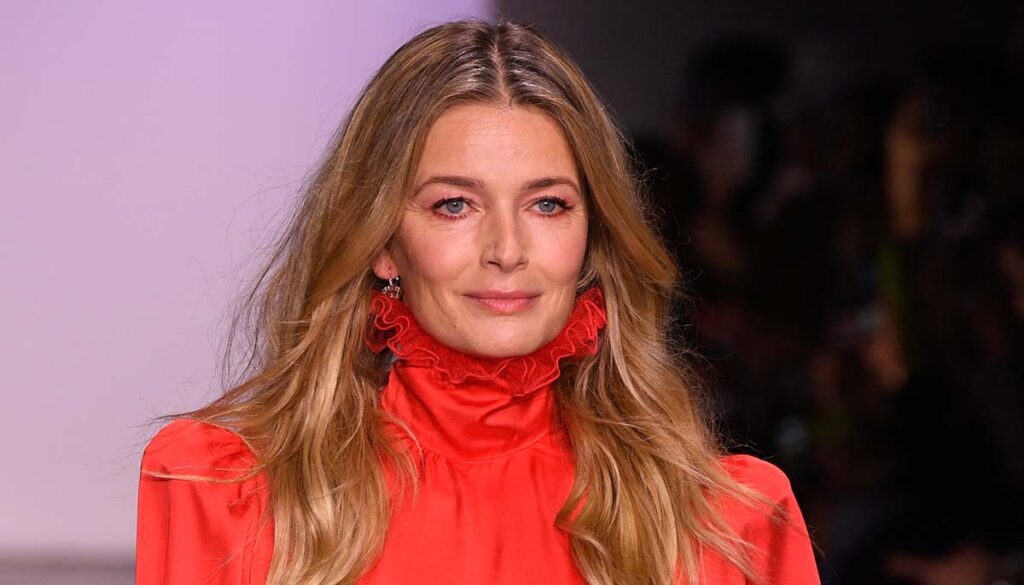
According to Porizkova, her good looks are not the issue; ageism is. Almost daily, the comment section is full of people saying things like “easy for her to say!” or “you must be in so much pain to be posting bikini posts at your age.”
Porizkova frequently fires back by sharing yet another age-positive post. She often notes that the perspectives implying she’s no longer allowed to be beautiful or post while poolside in a bikini remain at the heart of her problem with “anti-aging” as a concept.
A woman of 57 is “too old” to pose in a bikini – no matter what she looks like. Because “Old” is “Ugly”. I get comments like these every time I post a photo of my body. This is the ageist shaming that sets my teeth on edge. Older men are distinguished, older women are ugly.
People who believe prettiness equals beauty do not understand beauty.
Pretty is easy on the eyes, partly because it’s a little bland, inoffensive. It’s easy to take in and easy to forget. Not so beauty. Beauty can be sharp. It can wound you and leave a scar. To perceive beauty you have to be able to SEE. This is why I believe we get more beautiful with age. We have earned our beauty, we understand what it is, and we can see it so much better.
There is no such thing as ugly and old. Only shortsighted and ignorant.
Paulina Porizkova, Instagram
Why “Anti-Aging” May Not Be Good For Us, After All
No matter how you view beauty standards, how we see ourselves is always the most compelling piece of the puzzle. Not to mention, “anti-aging” is ultimately an impossible endeavor. We can’t really “reverse the clock” or stand frozen in time, can we? Nor should we want to. No matter our age, we can only move forward, and there’s beauty in that too.
Beauty magazines like Allure say they’re banning the term “anti-aging” altogether. “Whether we know it or not, we’re subtly reinforcing the message that aging is a condition we need to battle,” explained editor Michelle Lee.
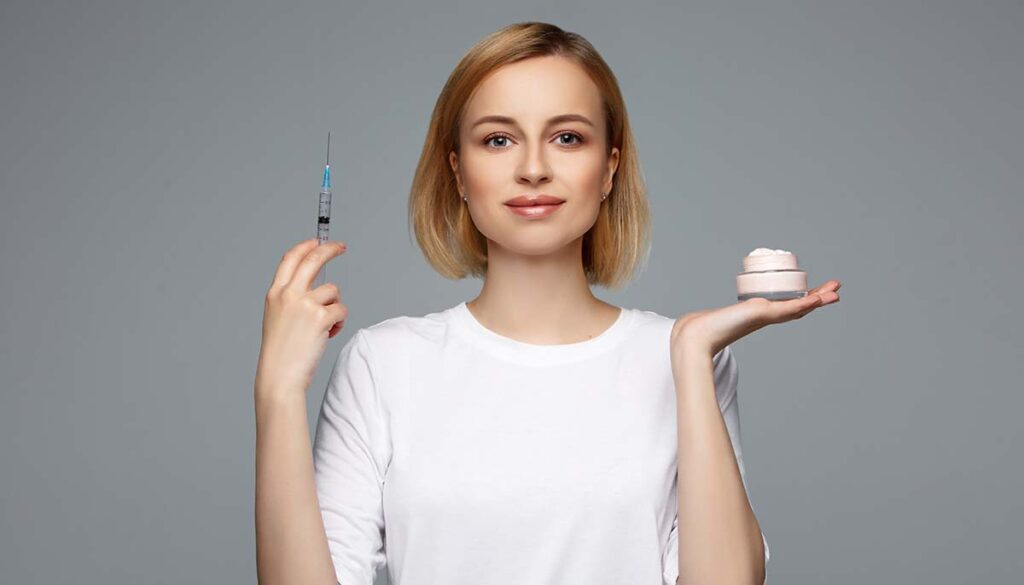
Obviously, there’s no shame in wanting to look and feel our best. Many who support the “pro-aging” movement welcome smile lines and silvery, grey hair with gratitude, often saying they feel even more beautiful now than when they were constantly chasing youth. But in the world of beauty standards, to each their own.
There’s nothing wrong with scheduling a chemical peel that promises to “take ten years off” your face. If it makes you happy, that’s what matters. Besides, a little “freshening up” doesn’t make you ungrateful for your experience, as long as you know you’re just as valuable without it.
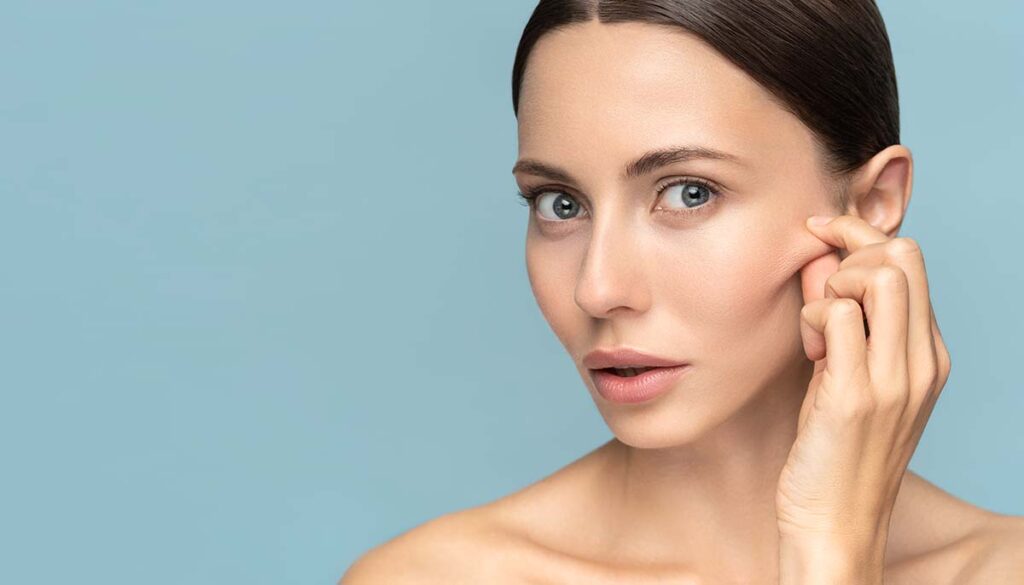
If nothing else, the term “anti-aging” is holding us back. By its nature, “anti” terminology implies that aging is something we should be against or avoid. It implies that aging is not beautiful. And why does taking care of our skin or improving its firmness with lasers have to mean we’re “anti” anything?
When the layers peel off, the skin that’s revealed underneath is still our skin, at our current age. Moreso, aging involves so much more than getting wrinkles. Perhaps, the problem with “anti-aging” has little to do with skin rejuvenation or the desire for a root touch-up. At a closer glance, the real issue is that we’ve been bottling, selling, and buying into the idea that “youth equals beauty” for far too long.
A youthful glow is undeniably gorgeous. In fact, many studies have shown that youthful skin and healthy skin are often viewed as one and the same, especially in the beauty industry. The reality is that youth is a fleeting asset and a moment in time. Yes, being young is beautiful, but there’s more to beauty than youthfulness. And thinking there isn’t could be unhealthy. No matter what beauty standards have led us to believe, that’s always been true.
The Bottom Line
Ultimately, our skin will change with or without our consent. We can slow down the visual aging process, surgically alter ourselves, seek spa treatments, or give aging gracefully a go (while always wearing sunscreen, of course). Regardless, there’s no time like the present for us all to work on self-acceptance, no matter what beauty standards we swear by.
Word to the beauty-wise, if you’re truly worried about frown lines and furrowed brows, consistently stressing out about aging may actually age you the most, as noted by Healthline.
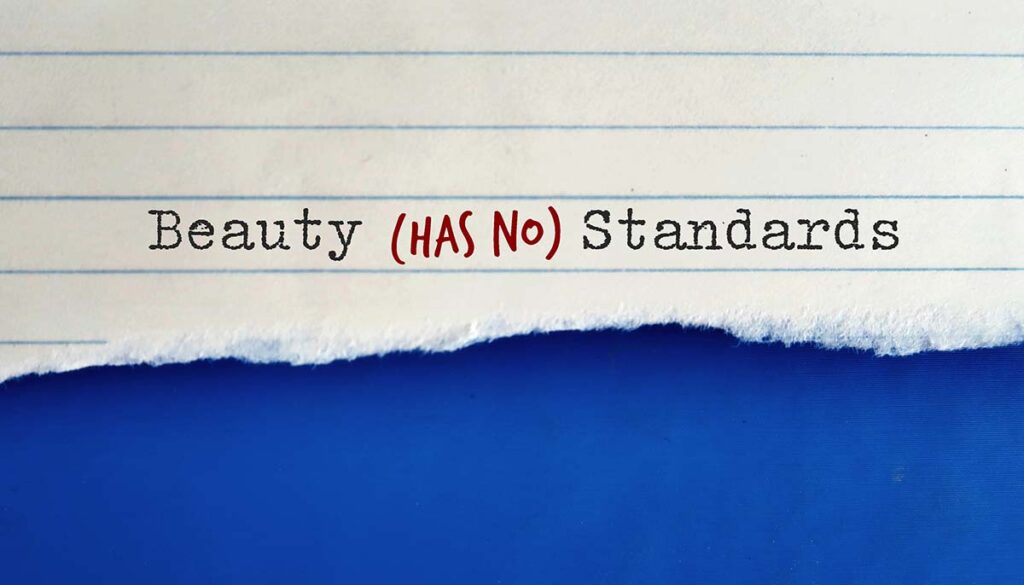
Only you can decide what feeling beautiful means to you. My opinions are just that, but I do have one request. Before you spend any pretty pennies on procedures you may not need, take a long and loving look in the mirror. Do you see things you don’t like or want to change? Sit with that feeling for a minute. Ask yourself whose beauty standard you are holding yourself to and why. The answer might prove illuminating.
Take this moment to accept yourself as you are, here and now, perceived flaws and all. Remember, you’re stunning because of who you continue to become and what sets you apart. If you want to alter your appearance in any way, that’s okay too. After all, confidence is something that exudes from the inside out.
When we feel comfortable in our own skin, we are beautiful. And it has nothing to do with meeting anyone else’s beauty standards.


